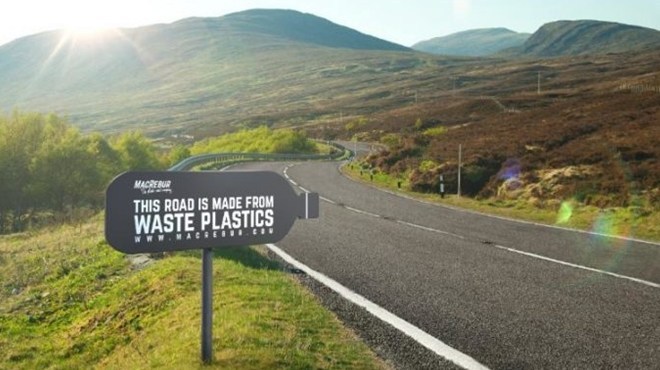Advocacy for coming up with eco-friendly solutions to daily problems is now commonplace globally. This is borne out of the appreciation of how important it is to cultivate a symbiotic relationship between human existence and the planet. One of the biggest problems affecting the environment is pollution, particularly through plastic material. Most plastic material is non-recyclable and also isn’t biodegradable. The best approach in dealing with such waste is to find use for it that addresses day to day challenges. In neighbouring SA they have kick-started a project that’s going to see the construction of roads using plastic waste.
Kouga Municipality
Horatio Hendricks, the executive Mayor of that region highlighted some details regarding where the inspiration for this ambitious project came from. He pointed out that his municipality has a backlog of half a billion rands in outstanding road repairs. He cited that the current revenue streams for the municipality aren’t enough to cater for such a huge amount of money. Poor road infrastructures increase the incidence of accidents, affect the smooth flow of businesses’ supply chain and create an unfavourable outlook to prospective investors. This, he said, is the major reason why they have, for several years now, been exploring cost-effective and innovative ways to tackle the road repairs issue. This quest ended up exposing Mr Hendricks to the possibility of constructing plastic roads. The idea was muted to him 2 years ago by Vicky Knoetze (a legislator in the Eastern Cape) who later hooked up Mr Hendricks and his team with a Scottish company called MacRebur.
The Modus Operandi
This company specializes in the construction of plastic roads. Their roads have been tried and tested in the UK plus various other countries across the world. MacRebur proposed that they would augment the asphalt mix which has been normally used as a top layer for road construction with MR6 (a secret material they use in the construction of plastic roads). This would be done by converting waste plastic into pellets which would be used as a substitute to a significant amount of the usually used bitumen. Remember that bitumen is extracted from crude oil (which basically entails fossil fuel usage). This will lead to reduced oil consumption thus lowering the carbon footprint in the environment. The partnership struck between Kouga Municipality and MacRebur makes Kouga the first ever municipality in SA (and in Africa) to try out plastic roads. The long haul aim is to have a factory built in Kouga where the plastic will be broken down into pellets. Other essential support services will be provided by companies such as SP Excel and Scribante Construction.
For 1 kilometre of road to be laid the quantity of plastic required is approximately 1.8 million plastic bags (or 684 000 bottles). One tonne of MacRebur’s mix contains plastic material equivalent to 80 000 plastic bottles. The trial run is going to be done on a 1 km long strip covering Woltemade and Koraal streets in Jeffreys Bay. This is scheduled to start in roughly a month’s time since in the meantime the product must be imported. Various associated partners are the ones bankrolling the trial (not the municipality). The cool thing about these plastic roads is that they are impervious to water. This makes them more robust and the incidence of potholes is decimated since water can’t seep through easily as is common with the traditional type of roads. The roads will also be much easier and cheaper to maintain.
This initiative is laden with benefits as is seen in the 3 ways it positively contributes to the municipality namely, improved road infrastructure, employment creation and less pollution. Once it has been successfully rolled out and proven to work I’m confident that would be something for us emulate and adopt as a nation. Considering the dismal state of road infrastructure locally we would definitely need something as more cost-effective and innovative as this. We covered a Bulawayo based startup Greenslabs that does something similar to this for sidewalks and pavements. Perhaps they could grow this big too.








